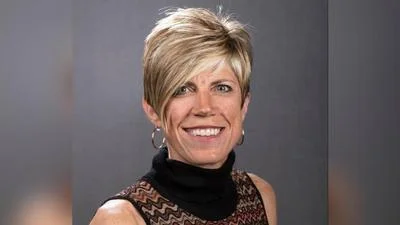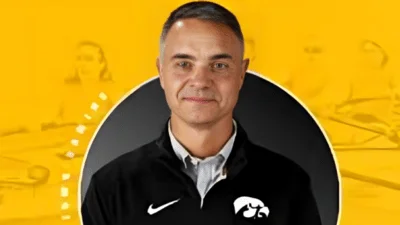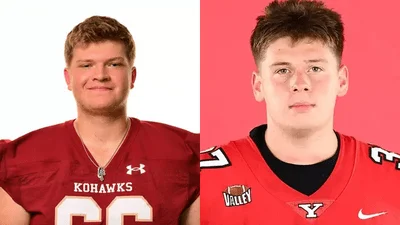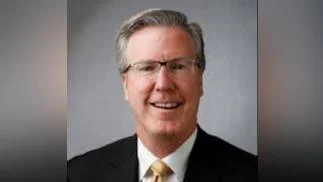Resident physicians Kevo Rivera, MD, and Nicole Woodson-DeFauw, MD, say the impact and lessons taught to them by mentors in medical school shaped the psychiatrists they are today. That’s one reason they wanted to start mentorship programs for minorities in medicine.
This work earned them the 2022 Diversity, Equity, and Inclusion (DEI) Leadership Group Award for their collaborative work in the Department of Psychiatry.
They have implemented several DEI-related initiatives in the department over the past year, including mentorship programs for current and prospective minority students.
How does it feel to win the first group award for the DEI Leadership Award? What does it mean to you?
Rivera: We were thrilled! It’s been incredibly gratifying to work alongside Dr. Woodson-DeFauw on various DEI projects in the Department of Psychiatry and the Carver College of Medicine over the past few years. The group award is perfect because, as leaders with minoritized identities, our DEI work is made more impactful and more sustainable through mutual support and collaboration, which we’ve certainly found in one another. We also owe a great debt of gratitude to the other DEI leaders throughout UI Health Care who have certainly helped shape us as leaders. An award like this is meaningful because it validates and adds value to this type of work, which is sorely needed in medicine and in mental health care.
Woodson-DeFauw: It was such an honor to receive the first DEI Leadership Group Award alongside Dr. Rivera. It is an amazing feeling to have the work that we placed so much value on be recognized. I’m incredibly proud of the new pathways we’ve created for students who are typically underrepresented in medicine. I think this award shows that we’re making a difference in the lives and careers of those around us.
What inspired you to start the Diversity in Psychiatry Student Mentorship Program?
Rivera: As a medical student, I had a handful of informal mentors who helped me through my education and professional growth, but I was still always nervous to ask for help. As a resident, I wanted to be proactive in inviting future psychiatrists to take full advantage of mentorship. Minoritized and underrepresented students deserve to see that there are people ready and willing to advocate for them and guide them as they advance toward the personal and professional goals they set for themselves.
Woodson-DeFauw: Mentorship was ingrained in my training at my medical school, Meharry Medical College. At the beginning of medical school, you were paired with a peer mentor, and as students gained seniority it was expected to continue the pattern. Creating this mentorship program was my way of giving back to minoritized medical students to help them advance their professional development and guide them through challenges. I knew there was a need prior to starting this program at this institution, but it became more apparent as my mentees (who are now soon to be interns in psychiatry) have expressed their gratitude to the process and mentorship.
Dr. Woodson-Defauw, how do you hope the new elective program for visiting students who are underrepresented in medicine will impact the experience of new residents at UI Hospitals & Clinics?
Woodson-DeFauw: For the past two years, and likely for years to come, residency recruiting has been virtual, which makes recruiting diverse applicants to Iowa difficult due to the inability to experience UI Health Care and Iowa City. Having a rotation at our institution will give visiting students the opportunity to learn how great of an institution and community we are. I hope this elective program will not only improve the diversity of our residency programs but will show other medical schools nationally why programs like this are important. It also shows our future UI Health Care residents that we value diversity and equity by creating an experience for underrepresented students to cultivate their learning, experiences, and professional development.
Dr. Rivera, you are very connected with the local community. In what ways does that help your work at UI Hospitals & Clinics?
Rivera: As a psychiatrist, it’s important for me to pay close attention to what’s happening on a local level, because it helps me understand the environments and events that affect the individuals and families I care for. I’ve been fortunate enough to connect with local organizations and join boards and commissions, which helps me do just that. Through these opportunities, I’ve also heard many examples of how stigma against mental illness and mental health care continues to be a barrier for folks from many different communities. I hope that in trying to be a bridge between UI Health Care and our neighbors, I can help reduce that stigma.
Tell me about how you hope to embody this award over the next year?
Rivera: I look forward to continuing the work that Dr. Woodson-DeFauw and I have started. We are planning the second year of our Mental Health Equity Grand Rounds Series (https://medicine.uiowa.edu/psychiatry/education/mental-health-equity-grand-rounds), and we hope to expand the Diversity in Psychiatry Student Mentorship Program this fall. It’s important for us to keep paying close attention to the DEI-related issues that our colleagues, students, and patients face and work to find creative solutions to address them. And I hope to keep encouraging folks to explore how they could integrate the lens of diversity, equity, and inclusion into their work as well.
Woodson-DeFauw: I look forward to continuing the work with Dr. Rivera, and I have started with the second year of our, now annual, Mental Health Equity Grand Round Series and our mentorship program. This award has motivated me to continue to think critically and to be innovative with ideas that may improve DEI-related issues. I also hope that we influence other medical students, residents and staff to embrace and pursue these values.
Original source can be found here.





 Alerts Sign-up
Alerts Sign-up